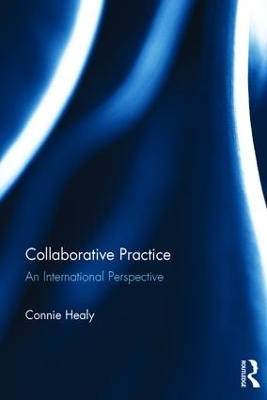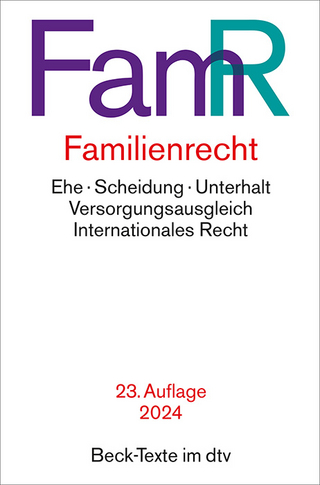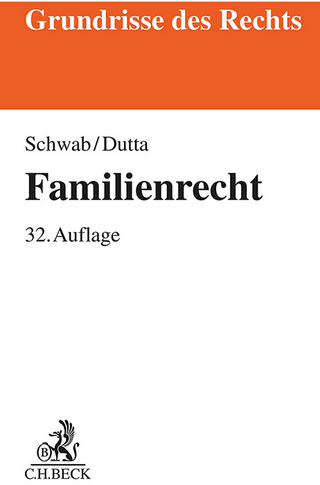
Collaborative Practice
Routledge (Verlag)
978-1-138-94876-1 (ISBN)
Collaborative practice is a new method of dispute resolution, used mainly in family law matters. By taking a non-adversarial approach, it challenges the strictly positivist view of the lawyer as ‘zealous advocate’ for the client. As such, it has received much criticism from the established Bar and legal profession.
This book provides a doctrinal and empirical analysis of collaborative practice with a view to assessing its place within the dispute resolution continuum and addressing whether this criticism has been justified. It begins by establishing the theoretical underpinnings of conflict and differing approaches to conflict resolution, the impact of the comprehensive law movement and therapeutic jurisprudence. The origins and development of the collaborative process and the framework it provides for a multidisciplinary approach to conflict resolution is outlined. The book addresses the examination of the process undertaken in the lead up to the enactment of the Uniform Collaborative Law Act in 2010; now regarded as a model of best practice. Finally, through an examination of empirical research undertaken in the US, Canada and in England and Wales, and in presenting the results of the first known empirical research into the process in an Irish family law context, the book concludes with an evidenced based analysis of the process from the perspective of couples who chose to use the collaborative model to resolve the issues surrounding their relationship breakdown, collaborative lawyers and lawyers who do not advocate a non-adversarial approach.
As such this book provides a valuable insight into the process which will be of interest to: academics; practising lawyers; members of the judiciary; researchers in the fields of conflict resolution and family law and for students studying alternative dispute resolution (ADR).
Dr. Connie Healy is a lecturer in Law at the National University of Ireland, Galway
ContentsTable of casesTable of StatutesAbbreviationsIntroductionChapter 1 - The Theoretical Foundations of Collaborative Law and Alternative Dispute ResolutionIntroductionThe Theory of Alternative Dispute Resolution and the Importance of Understanding ConflictCollaborative Practice on the Dispute Resolution ContinuumCollaborative Practice as a ‘Vector’ in the Comprehensive Law MovementWhat is Therapeutic Jurisprudence and How Has it Been Received?Conclusion?Chapter 2 – The Process and the Unique features of Collaborative PracticeIntroductionThe Origins and Development of Collaborative LawThe Process – a broad overviewThe Participation AgreementThe Disqualification ClauseThe unique elements of the collaborative processAre collaborative lawyers taking on a higher level of ethical standards?So why would lawyers agree to engage with this process?The Multidisciplinary ModelConclusion?Chapter 3 – The Advent of the Uniform Collaborative Law Rules/Act 2010 and the ripple effect.IntroductionThe Impetus for an ActThe Uniform Collaborative Law ActPrior to Engaging in the ProcessEngaging in the Process – Core procedural provisions under the ActThe Impact of the Uniform Collaborative Law Act – Ireland as a case studyConclusionChapter 4 – What has the research revealed?IntroductionInternational Research - MethodologyWho is using the p
| Verlagsort | London |
|---|---|
| Sprache | englisch |
| Maße | 156 x 234 mm |
| Gewicht | 430 g |
| Themenwelt | Recht / Steuern ► Allgemeines / Lexika |
| Recht / Steuern ► EU / Internationales Recht | |
| Recht / Steuern ► Privatrecht / Bürgerliches Recht ► Familienrecht | |
| Recht / Steuern ► Privatrecht / Bürgerliches Recht ► Zivilverfahrensrecht | |
| ISBN-10 | 1-138-94876-4 / 1138948764 |
| ISBN-13 | 978-1-138-94876-1 / 9781138948761 |
| Zustand | Neuware |
| Informationen gemäß Produktsicherheitsverordnung (GPSR) | |
| Haben Sie eine Frage zum Produkt? |
aus dem Bereich


